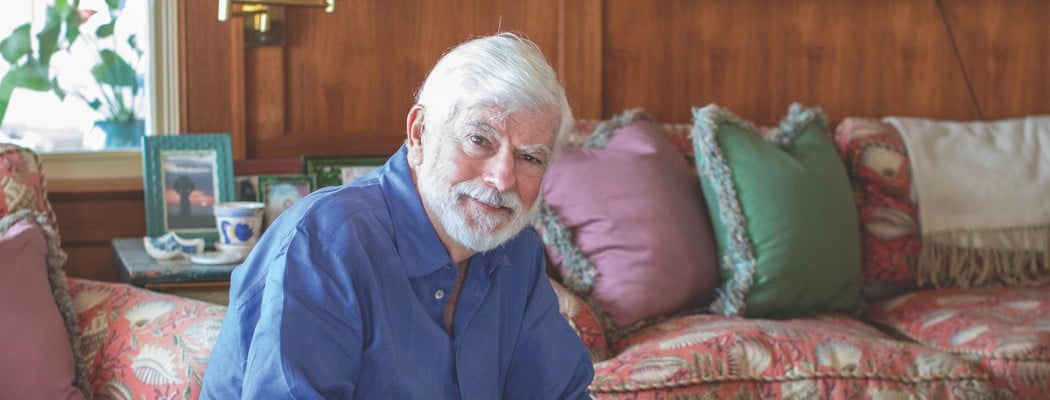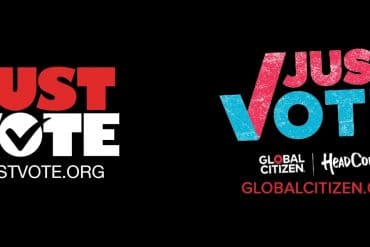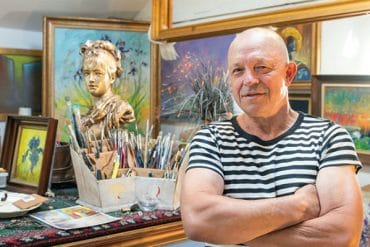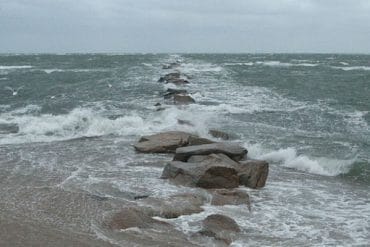Senator Chris Dodd reflects on his father’s historic role in the Nuremberg Trials.
Christopher J. Dodd was the longest serving senator in Connecticut history. During his distinguished career in the Senate, he was chairman of the Senate Banking, Housing and Urban Affairs Committees, and served on the Committees on Foreign Relations, Health, Education and Labor, among others. He was the principal author of numerous pieces of legislation including the Dodd-Frank Wall Street Reform and Consumer Protection Act and the Child Care Act. Dodd’s career was highly influenced by his father, the late Senator Thomas Dodd, who was best known for his critical role in the Nuremberg Trials.

A passionate defender of human rights both during and after his terms in office, Dodd published Letters from Nuremberg, which is a compilation of letters his father wrote to his mother, Grace, during what was termed the trial of the century.
N Magazine sat down with Senator Dodd to discuss a range of topics, most notably his important book, the lessons drawn from his father’s work in the Nuremberg Trials, and how his mission continues through the Dodd Center for Human Rights at the University of Connecticut.
Your father was a United States senator and you followed in his footsteps. What about your dad inspired you and set you on this course?
Well, it wasn’t, of course, the only thing. I had served in the Peace Corps, which was a life-altering experience for me in the mid-1960s. Even though John Kennedy had been assassinated three years earlier, it was still very much that calling to be involved in things larger than yourself. My father was still alive when I made that decision after college. The decision to get involved in public life, to get involved in elected office, is something that I thought one day might happen. But it’s a very dangerous ambition because the variables that allow that to happen are so beyond your control that sometimes I often say to younger people, “Don’t make it your only ambition. No matter how talented and competent you may be, no matter how successful you may be at it, the timing just may not be right for you.”

What influence did your father have on your entry into politics?
My father’s influence on me became less about running. In fact, there were probably more reasons to be a little discouraged about running. He had a tough ending; he lost his last election. He went through a very rough period in the Senate despite a distinguished career in a number of areas. And I had siblings of mine that frankly were not overjoyed at the fact that I might run for Congress. Now, when I did run, they were very involved and helpful in many ways, and certainly celebrated the night and afterwards when I won election in 1974. But given the difficulty of public life and the pains and discomfort it can cause, not just in the person who’s the target, but their families, there were more influences to dissuade me in some ways from running than there were from running.
How did he shape you for your political life?
Once elected, I very much admired his courage, his willingness to stand up for things he believed very deeply in, and was successful at it. He won two terms in the Senate and won two terms in the House. To this day, long since he’s been gone, gone for fifty-odd years, people still come up to me and talk to me about him. It was those qualities, many of which bore evidence in Nuremberg, that probably had more of an influence on how I conducted myself as a member than whether or not I made the decision to actually run in the first instance.
Explain how you discovered the letters from your father to your mother written during the Nuremberg Trials that became the basis for your book Letters from Nuremberg.
I had heard there were letters. When my parents passed away, my sister, Martha, was the logical choice to become sort of a repository of family heirlooms. I finally asked my sister about the letters. They were literally in her garage in Providence, Rhode Island, in several large manila envelopes in a totally disorganized fashion. I asked her if I could have them. I was in the Senate now at this point. My first decision was to go through them chronologically, put them in order and then have them typed up. I gave them, volume one of the letters, all the letters in 1945, to my siblings and a bound version that I had made up for them as a Christmas gift. Then the following year, I did the letters of 1946 in a second bound version. I thought, “Well, that’s a nice keepsake for my siblings to have to pass on to their own children or grandchildren in time.” It did not occur to me to publish or suggest the publishing of these letters. That came about when I was talking to a friend of mine in Connecticut who was a writer.

How did you father become the essential member of the prosecution under Supreme Court Justice Robert H. Jackson?
He had been a special assistant to five attorneys general and Jackson was one of them. He and Jackson had a kind of special relationship. Jackson knew my father and knew him as a prosecutor and a very skilled courtroom lawyer. So [my father] was asked to join as part of the team that went to London first in 1945 and then on to Nuremberg. A guy named “Wild Bill” Donovan, who started the OSS [Office of Strategic Services], was originally designated as Jackson’s number two at Nuremberg. According to reports and records, the two of them couldn’t get along. Donovan left as the executive trial council in the fall of 1945 and Jackson turned to my father.
What do the letters reveal that the history books miss?
The letters reflect the people [my father] got to know. He talked about Martin Bormann [the head of the Nazi Party Chancellery] as being disheveled and unkempt. If he didn’t know otherwise, he would’ve thought he was sort of a homeless figure on the streets of Berlin. He was just physically a mess and didn’t maintain any kind of decorum of his own attire to the extent they were able to do any of that as prisoners at the installation at Nuremberg. He talked about Wilhelm Keitel [the high command of Nazi Armed Forces]. Keitel always kept himself impeccably neat, very much the career soldier. My father thought Keitel was bright and talented, but he was stunned by the cult-like loyalty Keitel had to Hitler. He never could get over the fact that Keitel just didn’t understand the corruptness, the lunacy, the danger of Hitler. In every other aspect of Keitel’s life, he almost seemed to be very orderly and structured. And yet, this deviation was terribly perplexing to my father. Keitel asked my father at one point to give him a note to get to his wife. It’s unclear from the letters whether he actually delivered it or not. But it was an interesting moment. They developed sort of a decent relationship through the interrogation process.

What was the most dramatic moment in the trial?
The court wasn’t going well. In fact, even the media was losing some interest. It was very data driven. The Nazis kept incredible statistics and data on their crimes. So the amount of information, basically the evidence that the Nazis provided to the trial, was so indicting that there was no hope whatsoever that these people were going to escape serious punishment for their crimes. But people were losing interest. It wasn’t as dramatic as my father thought it ought to be.
And so he put a table in the middle of the courtroom. He then went into some description of what he was about to show them, that it would say more about the defendant, in a sense, than all the data they’d heard. Eventually the cloth there on the table was pulled back [to reveal] a sole object: the shrunken head that was used as a paperweight on the commandant of Buchenwald’s desk. And in the video, in the audio, you can hear the gasps in the courtroom. Given the horrendous crimes that were committed, you’d think that there would be more dramatic moments in a way, but this was one of the most dramatic in a sense.

Your father described the trial as an autopsy on history’s most horrible catalog of human crimes. Was he himself traumatized by this? After the trial, did he embody or was he impacted emotionally by what he saw?
He was. The evidence at Nuremberg, the films that the Army Signal Corps took that he put into evidence as the trial began, and the testimony of others that would report on the horrors of those Nazi years had a profound effect on him. He says in one letter to my mother in 1946, “People will wonder for a thousand years how this ever happened.” The brutality of it all was just beyond his imagination in many ways. And I think it had a huge effect on him.
 Did he draw a conclusion as to the circumstances and conditions that led to the rise of Hitler?
Did he draw a conclusion as to the circumstances and conditions that led to the rise of Hitler?
Absolutely. My father was greatly worried that people were losing sight of how Hitler arrived at power. Hitler was elected to office. He didn’t take power by force. He was popularly elected in the country. And so this assumption that we only have Hitlers in the world who take power because of force is a myth. Secondly, he said he talked about how radio played a hell of a role. Radio was new. This voice that would’ve been maybe contained in some place actually could be heard. Hitler could be heard all over Germany. He was using modern technology to carry his message. And he was a mesmerizing speaker and of course appealing to people’s sense of pride. They had been humiliated in World War I and destroyed economically. The whole idea was almost in perpetuity. And so Hitler comes along and revives and appeals to all those nationalistic ideas. My father came back from that experience saying it can happen again.
Are there echoes of that happening today?
We’re in the midst of it. It’s not what might happen; it is happening. We’re in the middle of it in many ways. And it can manifest itself. We now know in far greater detail that January 6th was not just a coincidence. It was a planned event. And so the relevancy of Nuremberg is not just of historical significance. It has contemporary value. I’m not drawing comparisons between Donald Trump and Adolf Hitler, but I am drawing comparisons between what was happening with the general public and people’s fears. We know that in politics appealing to people’s fears and hates works. Hitler did it, and did it with great success. It can happen in a democracy as strong as ours as well.
How is the Dodd Center working to fend off these threats to our democracy?
Over 60 percent of the American people today think Hitler came to power by force. They think that maybe a million people died in a Holocaust. And then, of course, [there are] people who deny it happened altogether, which are growing in numbers. And so you need to understand that this notion of human rights is not merely an international issue. Unfortunately, over the years, we’ve only discussed human rights in the context of international behavior. We haven’t often enough taken a closer look at matters close to home, to use the words of Eleanor Roosevelt, when she introduced the universal declaration on human rights in the late 1940s. That’s why we’ve named the program the Dodd Center for Human Rights. It’s not just examining the horrors of the Uighurs or what’s happening in Africa or happening in Latin America. It’s [examining] what’s happening close to home. And hopefully what we’re doing at this public university in this one small state [the University of Connecticut] will gain some credibility so that other institutions will decide it’s worthy to begin teaching in an elementary school, let alone in a university, the importance of what we have here and how fragile it can be.
This interview has been edited and condensed due to print space limitations.






